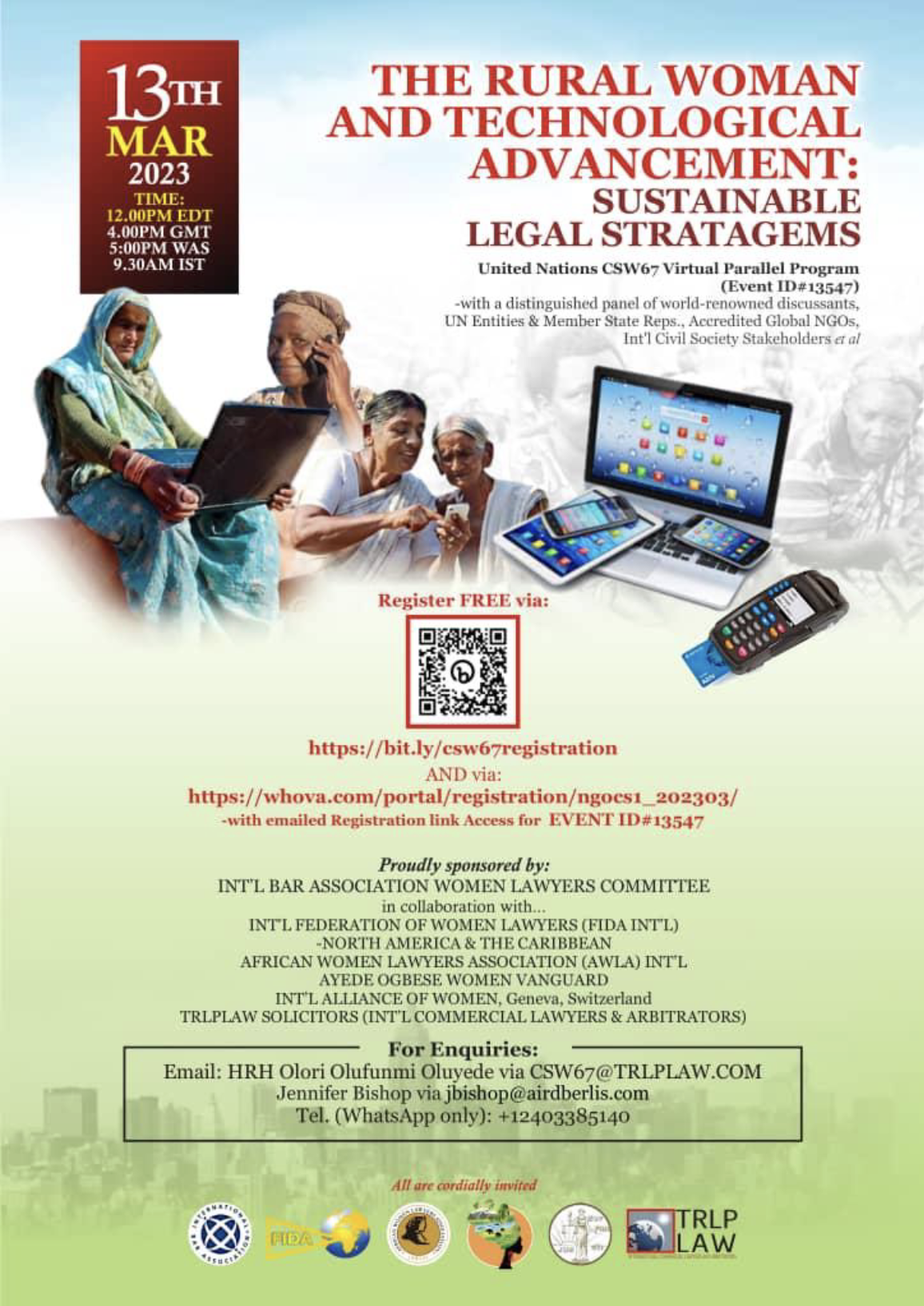International Women’s Day: From the practice of law to the growing of seeds
Wednesday 22 March 2023
Return to blog
WALKING THE TALK
A monthly contribution by the IBA President

The partners participating in the IBA Women’s Day, virtually connected
Thirty leading lawyers from all over the world came together virtually at 14:30 CET last 8 March to wish each other and all our colleagues a very happy International Women’s Day. I feel proud that the IBA celebrated International Women’s Day in that manner, for the first time. You can find full details of the event here.
Of course, our Association was already dedicating significant efforts to promoting gender equality, especially in the legal sector. The IBA prides itself on outstanding initiatives in this regard. They come from the Women Lawyers’ Committee (WLC) – see their recent Mentoring Toolkit here, the Legal Policy and Research Unit with the ambitious project ‘50/50 by 2030’ that you may find here, the Human Rights Institute promoting and defending the fundamental right to equality as explained here, as well as the Diversity & Inclusion Council who, as you may find here, works to ensure that our IBA completely embraces the best practices in those areas.
The first IBA Women’s Day celebration was organised at short notice, in less than a month. Where there is the will, there is a way. The enthusiasm and professionalism of the officers of the WLC, of female lawyers all over the world and of the IBA London Office, made it possible. And it was a great success.

The UN webinar programme
I add the support of managing partners at local firms who sent their associates to participate in the local in-person discussions that took place in conjunction with the virtual session. Talent attraction and retention at law firms is at the top of our agendas. As regards female retention, there is a clearly identified problem at the stages before accessing partnership. I sincerely hope that our global coaching may have been of help.
The objective of this celebration was giving visibility to so many successful female lawyers across the globe, showing younger associates who were participating at the in-person local meetings that becoming a partner is possible. That merits do matter. That, in addition, we must be brave and dare to occupy the professional space that belongs to us. Remember: “...a coward dies a thousand times before his death,” (Julius Caesar, Shakespeare).
Following this happy and successful event, a few days later I represented the IBA in a webinar entitled “The Rural Woman and Technological Advancement: Sustainable Legal Stratagems”, organised by the IBA and the United Nations. I had to change my lens to capture a very different reality regarding gender equality. On 8 March we were discussing with female professionals how to reach the top. Only five days later, I was reflecting about rural women who often lack the right of ownership, of inheritance, of access to justice.
Rural women are so crucial to the global economy. They comprise a quarter of the world’s population. They provide 43 per cent of the world’s agricultural labour and produce half of the world’s food. According to the UN’s Food and Agriculture Organisation, they reinvest 90 per cent of their income in their families, so rural women and girls play significant roles in the eradication of poverty.
Yet in spite of this, women own less than 20 per cent of land worldwide and receive less than 10 per cent of available credit.
What are the reasons for such a dramatic reality?
Rural women face a compounded inequality: firstly, in terms of the environment where they live and the lack of opportunities in so many fields: access to land, education, credit, natural resources, electricity, and physical and digital connectivity; and secondly, on account of their gender – by the mere fact of being a woman. The barriers generated by the first inequality become larger when they interact with the gender factor.
The first step to improve their status is by recognising their fundamental rights. The second, granting them access to digitisation and agri-food technology. The law should be a change enabler, starting with the right to ownership and ending with regulating the required incentives approved by local governments to foster financing and access to credit. The professional space does not exist for rural women. The law should enable the creation of such space for rural women to occupy.
From the practice of law to the growing of seeds, gender equality is a necessary ambition that the IBA is determined to support.